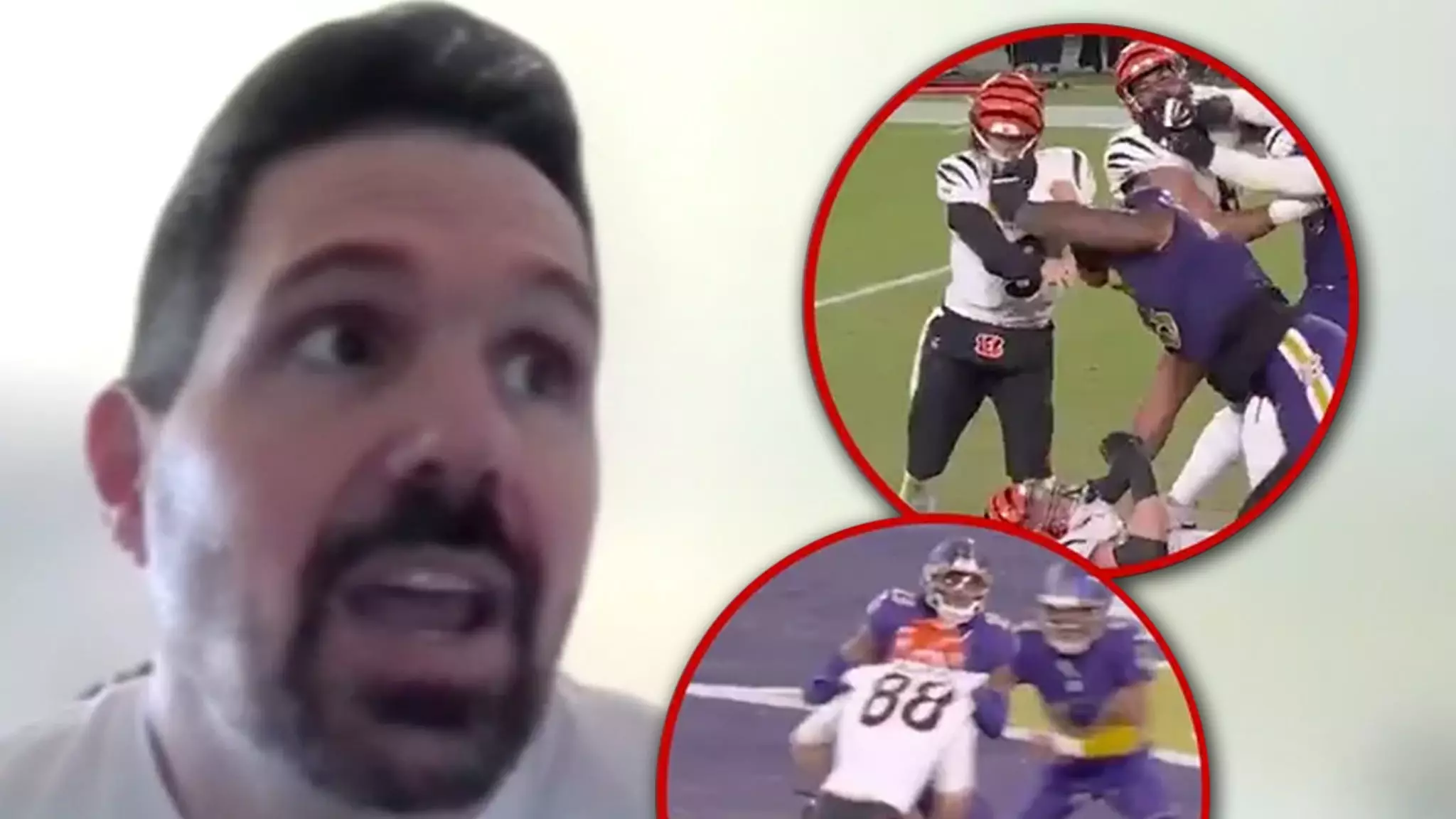The recent match between the Baltimore Ravens and the Cincinnati Bengals has ignited significant discourse among fans and analysts alike, particularly due to two glaring missed calls that impacted the outcome of the game. This high-profile showdown turned into a nightmarish experience for the Bengals, who were left grappling with the consequences of officiating errors during a critical moment—the deciding play in a tightly contested game. As frustrations mount, the need for a thorough evaluation of officiating standards within the NFL becomes increasingly clear.
To gain a deeper understanding of the issue, former NFL Vice President of Officiating Dean Blandino offered his expert analysis on the matter. Appearing on the TMZ Sports TV show, Blandino acknowledged the officials’ eagerness to implement enhanced replay opportunities as a potential remedy for controversial call situations. Although there was initial resistance to increased scrutiny through replay technology when it was first introduced in 1999, the advancements in today’s technology have rendered such tools invaluable for ensuring accuracy in officiating.
Blandino stressed that officials themselves are deeply committed to making the right calls on the field. Their desire for accuracy often surpasses the frustration felt by players and fans alike. No official wants to leave the game feeling as though their decisions have let teams down. By employing a robust replay system, the feedback loop can be strengthened, and the likelihood of misjudgments diminished, ultimately leading to better outcomes for all stakeholders involved.
Moreover, as the technology continues to evolve, it becomes increasingly perplexing that the NFL has not utilized available resources to better aid officials in their decision-making processes. Blandino’s assertion that the officiating community would welcome expanded replay highlights the potential for collaboration towards a common goal—accurate officiating.
While the consequences of the missed calls cannot be altered for the Bengals or their fans, they certainly raise a pivotal question regarding the accountability of the officiating crew assigned to that match. According to Blandino, officials are subjected to rigorous evaluations, with every call closely scrutinized. The grading system ensures that underperformance is noted, potentially leading to downgrades for officials or even adjusted assignments in future games. Such protocols serve to uphold a standard of excellence within the officiating community.
Looking ahead, it is crucial for the NFL to not only address the immediate impacts of the mistakes made during this game but also to consider a broader strategy for improving officiating standards overall. Expanding the use of technological tools, together with fostering an environment that encourages officials to embrace change rather than resist it, could significantly enhance the integrity of the game. As fan engagement hangs in the balance, and with growing scrutiny on officiating standards, the league must prioritize meaningful reforms to restore confidence among players and fans alike in the crucial role officials play in shaping the outcome of games.

